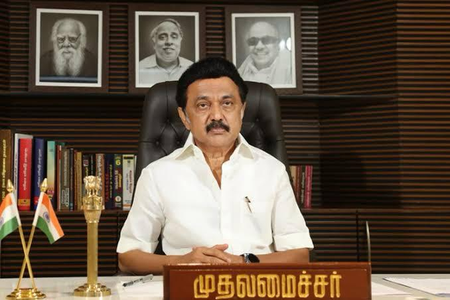

Chennai, April 14 (IANS) Tamil Nadu Chief Minister M.K. Stalin will hold a consultative meeting with the Vice-Chancellors and Registrars of all state-run universities at the Secretariat on April 16, an official release said on Monday.
According to the release, the meeting will focus on improving the quality of higher education in the state.
The development follows the Supreme Court’s landmark ruling last week, which held that several university-related Bills – re-adopted by the Tamil Nadu Assembly and pending Presidential assent – are deemed to have received approval.
In a significant move, the state government on Sunday notified 10 such Acts, making them law without requiring assent from the Governor or the President. These are the first set of Bills to be enacted under the Supreme Court’s ruling.
Although Chief Minister Stalin has previously chaired meetings with university heads, the upcoming session assumes added importance in light of the recent judicial verdict.
The meeting also comes ahead of the Assembly’s discussion on the demand for grants for the Higher Education Department for the financial year 2025–26, scheduled for April 24.
Officials from the department said the notification of the Acts is expected to bring university heads, many of whom were appointed by Governor R.N. Ravi, under the administrative framework of the State government.
There have been several instances where Vice-Chancellors reportedly refused to comply with directions issued by the Higher Education Department. Governor Ravi has often expressed strong support for the implementation of the National Education Policy (NEP) 2020, describing it as “comprehensive, revolutionary, and transformative”. This stance, however, runs counter to the Tamil Nadu government’s position.
The DMK regime has formed a separate committee to draft a state-specific education policy. With the legislation now in force, the Tamil Nadu government can proceed with appointing Vice-Chancellors to 12 universities where posts are currently vacant. The government is expected to ensure that these appointments are based on merit, competence, and integrity – particularly given past allegations of corruption in the selection process.
The Supreme Court’s verdict is seen not only as a legal milestone but also as a reinforcement of constitutional morality and the principles of cooperative federalism. The apex court had observed that a Governor is expected to act as a “friend, philosopher, and guide” to the state cabinet, not as an agent of the Union government.
–IANS
aal/vd
